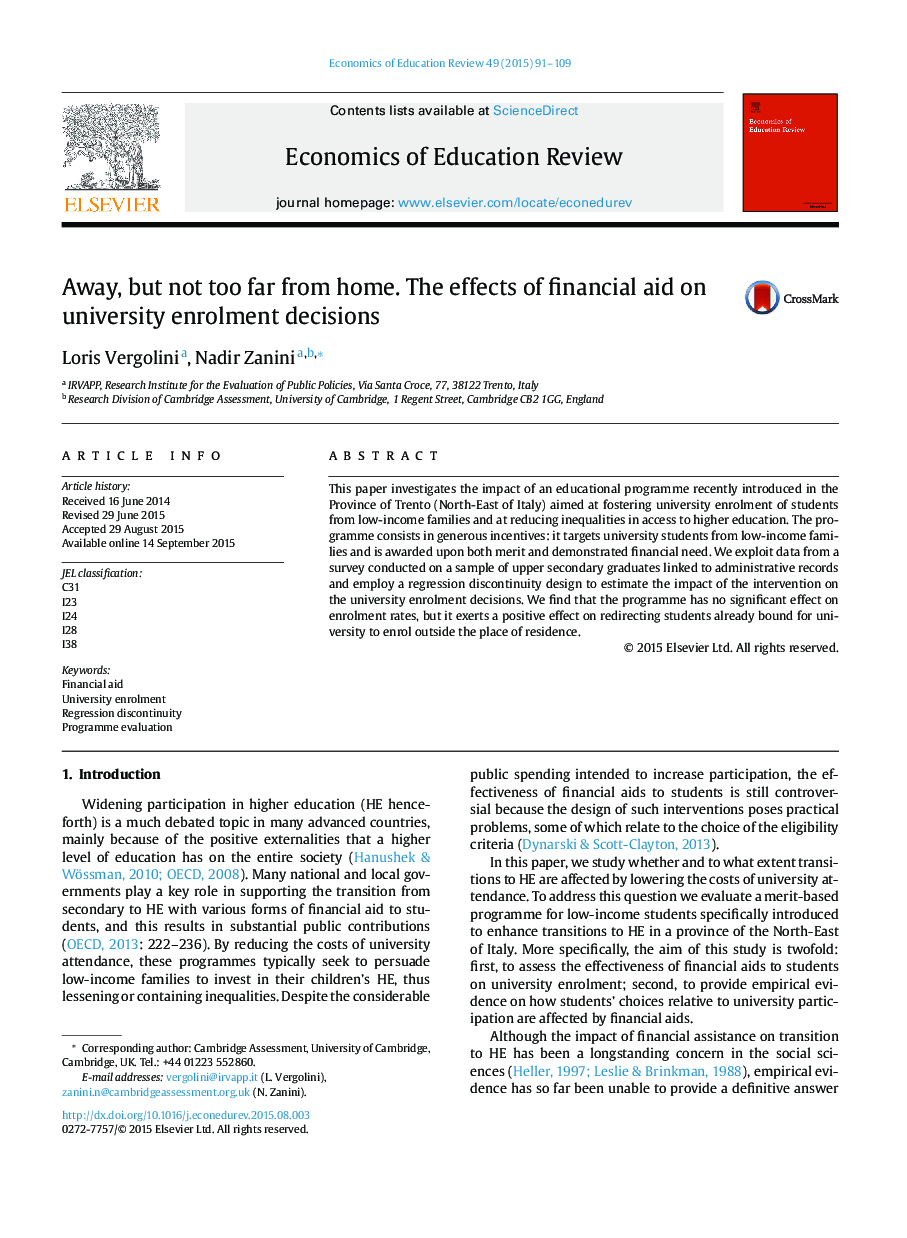| Article ID | Journal | Published Year | Pages | File Type |
|---|---|---|---|---|
| 354307 | Economics of Education Review | 2015 | 19 Pages |
•We analyse how students react to monetary incentives aimed at fostering university enrolment.•We focus on an Italian province as a case study, employing a unique data set combining survey data and administrative information.•We analyse a range of outcomes including enrolment and choices of the university.•Using a sharp regression discontinuity design we find no effect on enrolment but a remarkable impact on the choice of university location.•Relying on the empirical evidence, we propose a modification in the policy's eligibility criteria.
This paper investigates the impact of an educational programme recently introduced in the Province of Trento (North-East of Italy) aimed at fostering university enrolment of students from low-income families and at reducing inequalities in access to higher education. The programme consists in generous incentives: it targets university students from low-income families and is awarded upon both merit and demonstrated financial need. We exploit data from a survey conducted on a sample of upper secondary graduates linked to administrative records and employ a regression discontinuity design to estimate the impact of the intervention on the university enrolment decisions. We find that the programme has no significant effect on enrolment rates, but it exerts a positive effect on redirecting students already bound for university to enrol outside the place of residence.
